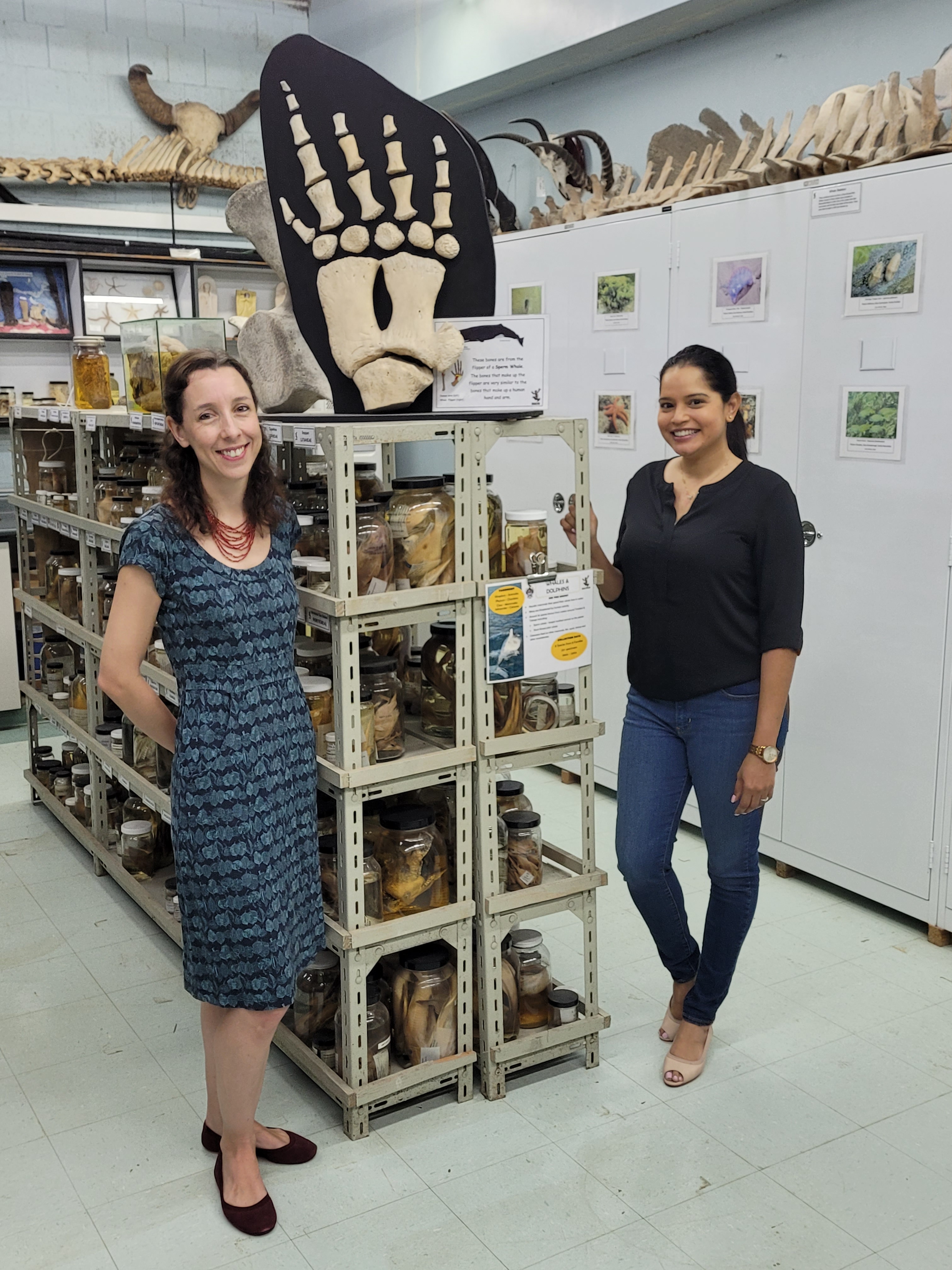News Releases
UWI Department of Life Sciences awarded 40,000 Euro to publish and promote local Biodiversity data
For Release Upon Receipt - October 7, 2021
St. Augustine

The UWI St. Augustine, Trinidad & Tobago. Thursday, October 7th, 2021 – The Department of Life Sciences (DLS) within the Faculty of Science and Technology (FST) at The University of the West Indies (The UWI) St. Augustine Campus, has been awarded a 40,000 Euro grant by the Global Biodiversity Information Facility (GBIF) via the Biodiversity Information for Development (BID) for a project entitled: “Improving the Accessibility of National Biodiversity Data in Trinidad and Tobago".
The grant will allow the DLS to build upon significant previous efforts to publish biodiversity data from The University of the West Indies Zoology Museum’s (UWIZM) extensive zoological collections. This new project is especially exciting as it sees the UWIZM partnering with two other institutions: the National Herbarium of T&T (also within the DLS and FST) and the National Museum and Art Gallery of Trinidad and Tobago , both of which also hold valuable natural history collections.
Beginning in October 2021, the first step will be to digitise and publish tens of thousands of specimen records from these three collections, collected over more than a century. Specimens will include thousands of native plant species and a wide variety of locally collected terrestrial and aquatic animals. Professor Judith Gobin, Head of the DLS is extremely pleased that the Department is playing such a key role in the digitisation of our valuable national collections.
The advantages of publishing these digitally online are huge. Dr Amy Deacon, Lecturer in the DLS and the Lead on the two-year project explained, “It means anyone, anywhere in the world will be able to access this data and learn about our biodiversity. They will also see where the actual specimens are housed, thus raising the profile of The UWI’s collections among international scientists and policy makers.”
As well as putting Trinidad and Tobago’s biodiversity data on the global stage, improving access at the local level is arguably even more important. As such, those datasets with relevance to Trinidad and Tobago’s protected areas will also be uploaded to the Ministry of Planning & Development’s own biodiversity platform: the Trinidad and Tobago Biodiversity Information System (TTBIS), to further encourage use of these data at the local level.
A second element of the project will involve the training of a wide range of national stakeholders, including NGOs, Ministries and governmental institutions, through a series of workshops held over the next 2 years. Through these interactive sessions, attendees will be trained in how to use the GBIF and TTBIS platforms to access, download and use information on T&T’s biodiversity for a wide variety of purposes. The potential uses for these datasets are extremely broad, and include policy and decision-making, conservation management and education.
Ms. Jennalee Ramnarine of the UWIZM, who will also play a key role in the project, added, “Museums and herbariums are so much more than just collections of dead specimens in jars or sheets of dried leaves. In fact, the specimens held in these collections represent invaluable data that can be used to inform policy and conservation to ensure that we protect our natural heritage for future generations.”
You can follow the project’s progress via the UWI Zoology Museum’s Facebook page. For more information contact Dr Amy Deacon amy.deacon@sta.uwi.edu or Ms. Jennalee Ramnarine uwizoologymuseum@sta.uwi.edu
-END-
About The UWI
The UWI has been and continues to be a pivotal force in every aspect of Caribbean development; residing at the centre of all efforts to improve the well-being of people across the region.
From a university college of London in Jamaica with 33 medical students in 1948, The UWI is today an internationally respected, global university with near 50,000 students and five campuses: Mona in Jamaica, St. Augustine in Trinidad and Tobago, Cave Hill in Barbados, Five Islands in Antigua and Barbuda and its Open Campus, and 10 global centres in partnership with universities in North America, Latin America, Asia, Africa and Europe.
The UWI offers over 800 certificate, diploma, undergraduate and postgraduate degree options in Culture, Creative and Performing Arts, Food and Agriculture, Engineering, Humanities and Education, Law, Medical Sciences, Science and Technology, Social Sciences, and Sport. As the Caribbean’s leading university, it possesses the largest pool of Caribbean intellect and expertise committed to confronting the critical issues of our region and wider world.
Ranked among the top universities in the world, by the most reputable ranking agency, Times Higher Education, The UWI is the only Caribbean-based university to make the prestigious lists. In 2020, it earned ‘Triple 1st’ rankings—topping the Caribbean; and in the top in the tables for Latin America and the Caribbean, and global Golden Age universities (between 50 and 80 years old). The UWI is also featured among the top universities on THE’s Impact Rankings for its response to the world’s biggest concerns, outlined in the 17 United Nations Sustainable Development Goals (SDGs), including Good Health and Wellbeing; Gender Equality and Climate Action.
For more, visit www.uwi.edu.
(Please note that the proper name of the university is The University of the West Indies, inclusive of the “The”, hence The UWI.)
Contact
Marketing and Communications Department
- Tel.: (868)-662-2002 ext.2013/2014
- Email: marketing.communications@sta.uwi.edu

